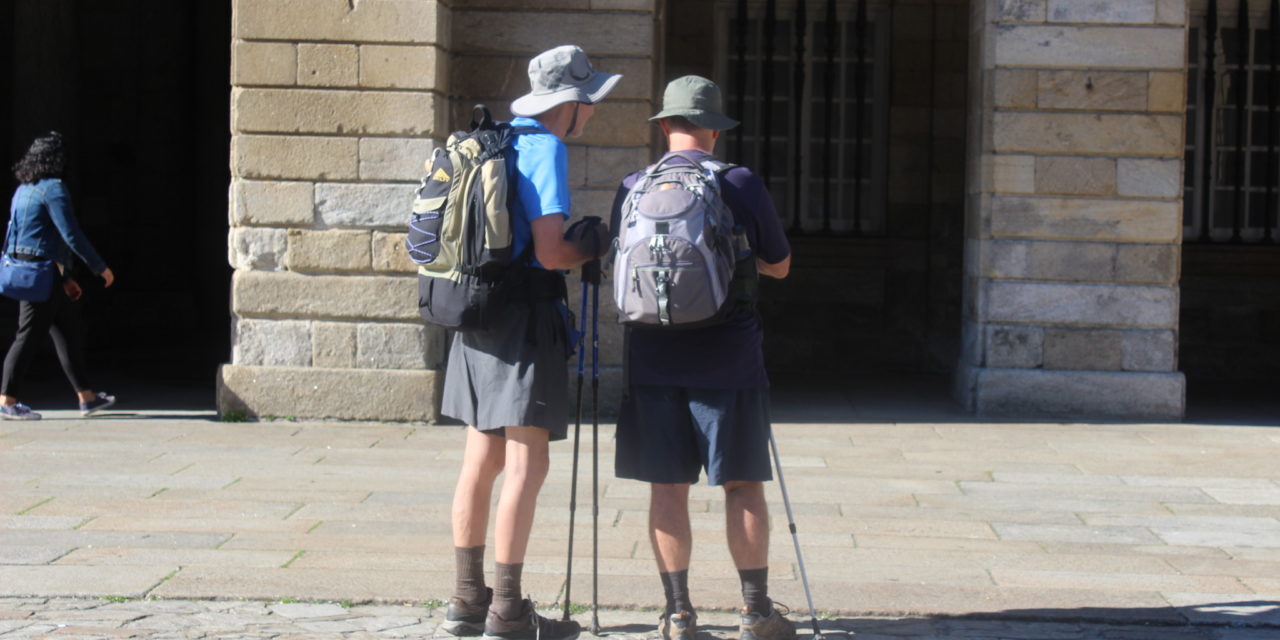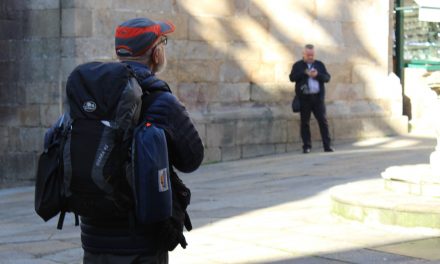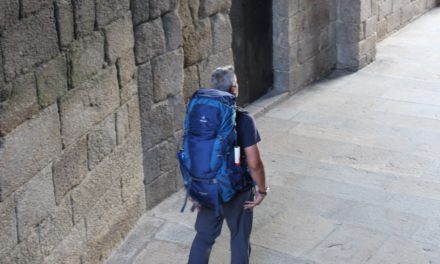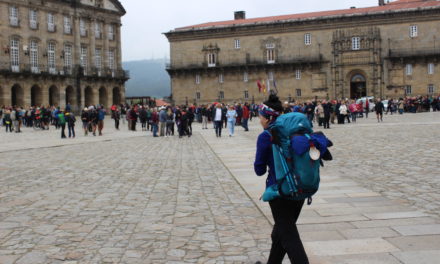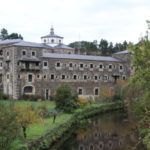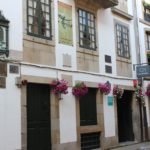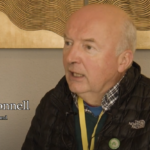His first Camino was in 2010 and he did it for a promise. He is a deacon in the Catholic Church and for a time he worked with a parish priest who always talked about the Camino de Santiago. He always told him that he was interested and that if at some point he decided to do it he would probably do it with him, but in the end the pastor transferred to another parish and it was a friend who suggested doing it with him. He did not ponder over it and he launched himself onto the Camino.
That first Camino was from O Cebreiro, it was a Camino that one could say he has never finished, because he returned in 2012, 2014, 2015, 2016, 2017 and now in 2018. The first time there five people with him, since then he has always travelled with only one friend. Together they have travelled the French Way from Saint-Jean-Pie-de-Port in different sections, this year from Burgos. The two have also taken the Portuguese Way from Oporto and, with another Italian with him he has made friends on the Camino, the English Way from Ferrol.
What motivated him when he heard about the Camino was something he later found in a famous inscription in Nájera: “the Camino is something interior and superior”. The motivation for him lies in the beauty of the landscapes, in the exterior, but the Way is also a path of strengthening one’s faith. In addition, inside your backpack you carry the weight of daily fatigue, of day- to- day problems, but on the Camino you seem to be anaesthetized from them because all your concentration is devoted to walking, and being in the present.
On the Camino, the waters of everyday life seem to open up and you can walk in another dimension. Even though he is in contact with the church in his daily life, on the Way he does not get distracted and is able to be more in tune with the divine.
He does not believe that solutions for everyday life are found on the Camino, because when you return home, the problems are still there. But there are things that you found on the Camino and that remain with you. Then there are the human relationships. Even without being able to speak foreign languages, he has managed to maintain true and profound personal relationships on the Camino, because people you have never seen in your life before speak to you, look you in the eyes and tell you intimate things. People talk on the Camino, sit down to talk. This aspect of the experience is one that would benefit young people.
On the Camino you can also find great solidarity among the pilgrims, something that is difficult to find anywhere else. The pilgrims help each other, for example they carry things for people who are having difficulty in walking. He tries to practice this in his daily life, but it is very difficult to spread a message of solidarity and peace to others. When you live in your daily life, the security you have built constitutes a wall that separates you from others, does not allow any such exchange. It allows no one to enter and it doesn’t allow you to scale the wall you have erected for your own security.
Another important aspect is to realize that for 20 days he and his friend walk with a backpack of 6 or 7 kilos and they have all they need. However, at home they live with a lot of things, accumulate things that are useless. The essential is in the 5 or 6 kilos that are carried in the backpack, you could live with that.
Something beautiful that has happened to him in relation to the Camino is that every year his friends and parishioners entrust him and his friend with small stones to leave at the Cruz de Ferro. The year they went to Finisterre, they also gave them small writings, wishes and requests to be deposited there. And they have done the same this year.

